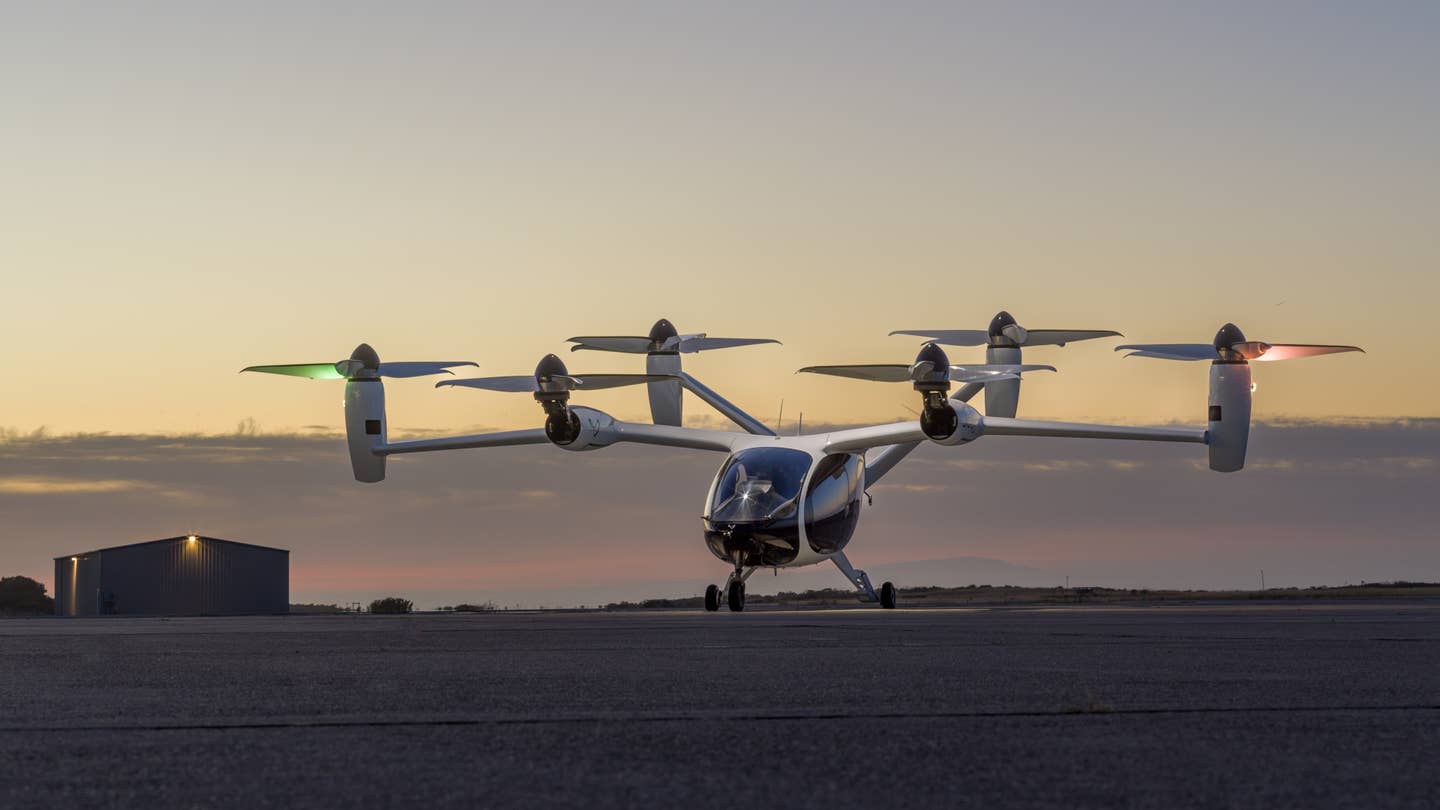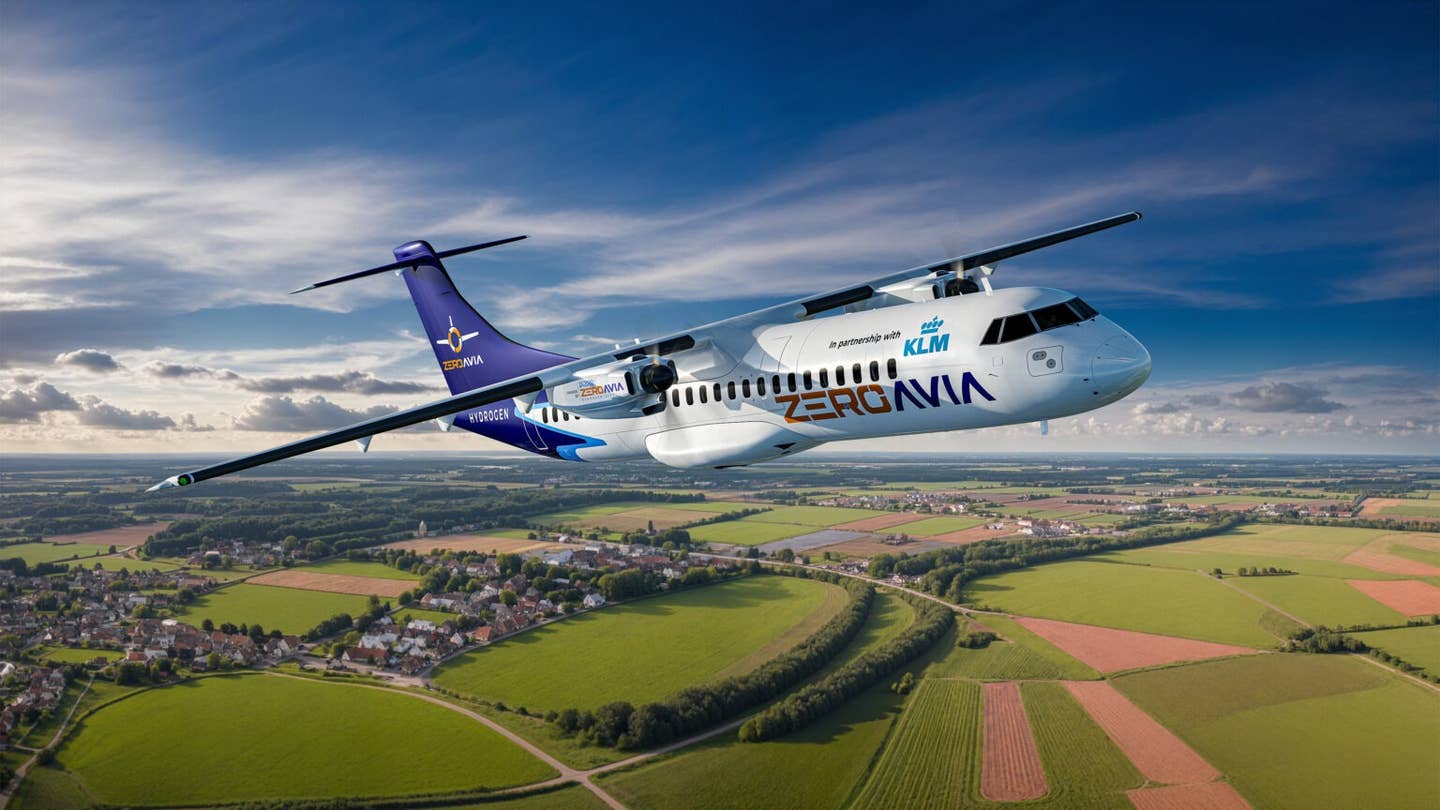Air Taxi Manufacturers Joby, Lilium Take More Baby Steps Toward Certification
Joby submitted its certification plans, while Lilium completed its final audit toward design organization approval.

Joby’s five-seat passenger eVTOL is expected to enter service in 2025, but first it needs to earn type certification. [Courtesy: Joby Aviation]
The certification process for electric vertical takeoff and landing (eVTOL) aircraft is long and arduous, with regulatory bodies like the FAA and the European Union Aviation Safety Agency (EASA) prioritizing safety above all. But two leaders in the space continue to make progress.
Santa Cruz, California-based Joby Aviation on Thursday announced it has submitted all of its certification plans—detailing how the company will demonstrate compliance with safety regulations—to the FAA. On the same day, German rival Lilium revealed it completed its fourth and final design organization approval (DOA) audit with EASA. Both are eyeing commercial launches in 2025.
Let’s start with Joby. The submission of certification plans represents the third of five stages in the FAA’s type certification process. Joby became the first air taxi firm to complete the initial phase in November, when its special airworthiness criteria were published in the Federal Register, laying out a basis for certification.
It was also the first eVTOL maker to finalize the means of compliance for those criteria, the second phase of the process, in February. Key competitor Archer Aviation is currently in that stage.
Now, Joby is nearing completion of the third stage. Its proposed certification plans include roughly a dozen submittals covering the hardware and software on board its five-seater eVTOL, including the aircraft’s flight controls, energy storage and distribution system, and propulsion system. Additional submissions cover cybersecurity and system safety.
Now those plans will require FAA approval. But last week it rolled out the first model from its production line and got the agency’s green light to begin flight testing with this conforming prototype, a key step toward validating its design.
“Today’s news is another step towards launching commercial service in 2025,” said Didier Papadopoulos, head of aircraft original equipment manufacturing at Joby. “We’re grateful for the FAA’s continued commitment to safely introducing next-generation aircraft into service.”
Across the Atlantic, another of Joby’s main rivals took its own baby steps toward certification. Lilium’s completion of its final audit puts the company closer to obtaining a DOA, which would demonstrate it has the capability to design and certify aircraft. In EASA certification, holding a DOA is a requirement for type design approval.
Lilium first applied for its DOA in 2017, and in May 2022 announced it had completed the second of four audits. Now the company enters the final stage of the DOA process, a “follow-up” phase that takes care of any outstanding actions and administrative steps.
“In simple terms, a design organization approval can be thought of as a ‘license to operate,’”said Alastair McIntosh, CTO of Lilium. “An aerospace company in Europe can neither hold a type certificate nor undertake or approve design activity without having a DOA.”
As it closes in on that approval, Lilium has also been working with EASA to type certify its seven-seater Lilium Jet. The eVTOL received an initial certification basis in 2021. And per Lilium, it has submitted all certification plans for the aircraft, though only 78 percent of its means of compliance has been approved by EASA.
Last month, the German air taxi developer became the first in the industry to obtain the FAA's G-1 certification basis while also holding a certification basis in the EU.
Along with Archer and Vertical Aerospace, Joby and Lilium are leading the way on eVTOL certification with their respective aviation authorities. Boeing-owned Wisk Aero is also considered to be in the mix regarding progress toward entry into service, though it has yet to receive a certification basis.

Subscribe to Our Newsletter
Get the latest FLYING stories delivered directly to your inbox






